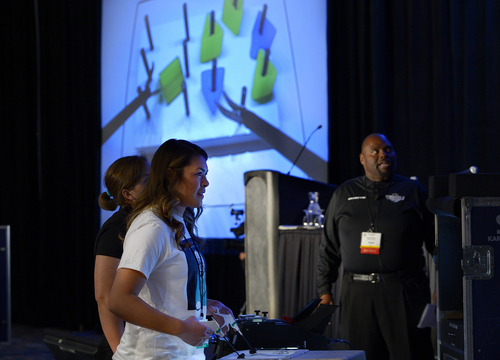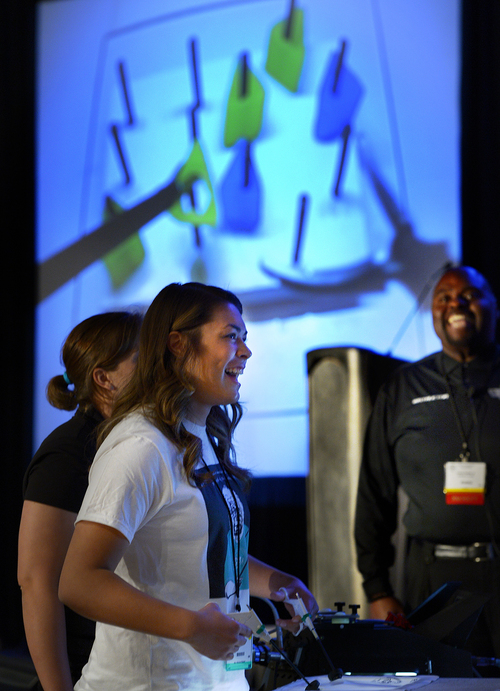This is an archived article that was published on sltrib.com in 2014, and information in the article may be outdated. It is provided only for personal research purposes and may not be reprinted.
Keli Kennerley said she'd always been interested in going into medicine, but the sophomore at Orem's Timpanogos High School never really considered being a surgeon.
"I didn't think I'd like blood and guts and all that stuff," she said, "but learning more about it, it's really interesting and not so disgusting."
Kennerley is now reconsidering her career path after competing Saturday with 80 other high-schoolers in the Mini Medical School Boot Camp, where she finished second.
The hands-on, interactive training was created more than 20 years ago by James "Butch" Rosser, a general surgeon at Florida Hospital Celebration Health, and has been targeted specifically at youths for a decade.
For the past five years, the program has been part of the Society of American Gastrointestinal and Endoscopic Surgeons, or SAGES, which this year staged its annual meeting in Salt Lake City.
Rosser's program tests students' eye-hand coordination and dexterity with video games and exercises designed to demonstrate skills that top-notch surgeons have to learn, especially with new, less-invasive laparoscopic techniques, done using small incisions, special instruments and tiny cameras.
It also challenges participants' strategic thinking and problem-solving skills.
"There is a big, looming shortage of surgeons," said L. Michael Brunt, president of SAGES and a professor of surgery at Washington University in St. Louis. It's especially true in small- and medium-sized areas as the number of surgeons fails to keep pace with the demands of a growing and aging population.
Like many sectors, medicine faces a shortage of students proficient in science and math.
"If you can get the interest of people when they're younger, maybe you can help direct them on a path in life," said Raymond Price, an event organizer and surgeon at Intermountain Medical Center who has also taught surgical techniques around the world through the University of Utah.
So the students Saturday competed in Super Monkey Ball, a video game Rosser says tests the skills of a surgeon better than any other available. They dropped beans into a cup with a small hole in it using long pincers and a video screen, and, with pincers, moved colored plastic triangles from peg to peg.
Anthony Carter, a senior at Spanish Fork High who won the Mini Medical School skills challenge, said he has planned to go into medicine since he was 10 years old.
"I always wanted to help people," Carter said. "I wanted to do emergency room [medicine]. Now I'm thinking of potentially going into surgery."
More than 3,000 students have gone through the program, Rosser said, with many moving on to become various types of surgeons, but he hopes they all turn out to be better people.
"Not all of them ended up being doctors. It's about developing confidence — the confidence that they can do great things, whether they go into medicine or not. …" he said. " I want them to have confidence they carry on into life, no matter what they do."
Twitter: @RobertGehrke





